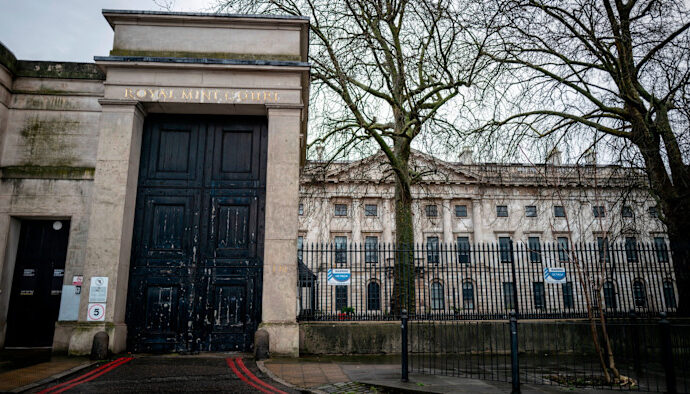
After more than a week of competition on courses lined with machine-made snow, actual snow and high winds forced the postponement or cancellation of at least three Olympic events on Sunday as flurries blanketed courses and slippery roads made getting to them difficult.
Yes, the Winter Olympics can be too wintry — even in Beijing and its surroundings, a region that gets little natural snow and had seen barely a dusting of it thus far during the Games.
A steady snow that began Saturday intensified on Sunday in Zhangjiakou, a city roughly 100 miles northwest of China’s capital that is host to some skiing and snowboarding events. A steady snow also fell in Beijing and Yanqing, home to sliding sports and Alpine skiing. Some of the events, including Alpine skiing and biathlon, went ahead in low-visibility conditions, with skiers dashing (and in the latter case, shooting) through the flurries.
But the women’s slopestyle event, in which the 18-year-old Eileen Gu of China was favored, had its qualification round postponed until Monday after initially being delayed two hours, and women’s aerials qualifying also was called off. Workers had used shovels, brooms and blowers on the course to keep the snow from piling up on the obstacles and jumps.
The second training run in the women’s downhill was also canceled. And buses carrying Olympic visitors had to put chains on their tires.
The outdoor Olympic sites — including those for Alpine skiing, cross-country skiing, the halfpipe and ski jumping — have relied on large doses of artificial snow. In many ways, organizers prefer artificial snow, because they can control it. When Mother Nature gets involved, all plans are off.
The region was expected to get two to four inches of snow by Sunday night. A blizzard warning was in effect through much of Sunday for the Chongli District in Zhangjiakou, according to the Central Meteorological Observatory. A blizzard warning was also in effect in Beijing.
Sunday was Beijing’s fifth snowfall of the winter, which is the dry season in Beijing and Zhangjiakou.
“Finally it feels like the Winter Olympics,” Chris Plys of the U.S. curling team said on Twitter on Sunday. He shared a video of the snowfall on Sunday, adding the hashtag #letitsnow.
Beijing, a water-scarce city, went to great lengths to ensure that there would be enough snow to sustain its run as host of the Winter Olympics. That meant embarking on one of the most extensive snow-making operations in the history of the Games. The herculean effort included flooding a dried riverbed, diverting water from a key reservoir that supplies Beijing, and resettling hundreds of farmers and their families, who were living in what is now the competition area, in high-rise apartments.
Over the past few decades, rapid development has sapped Beijing’s groundwater. July and August often bring heavy rains, but the city and the nearby mountains get only sprinkles of precipitation in the winter.


